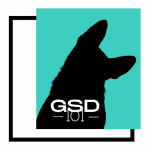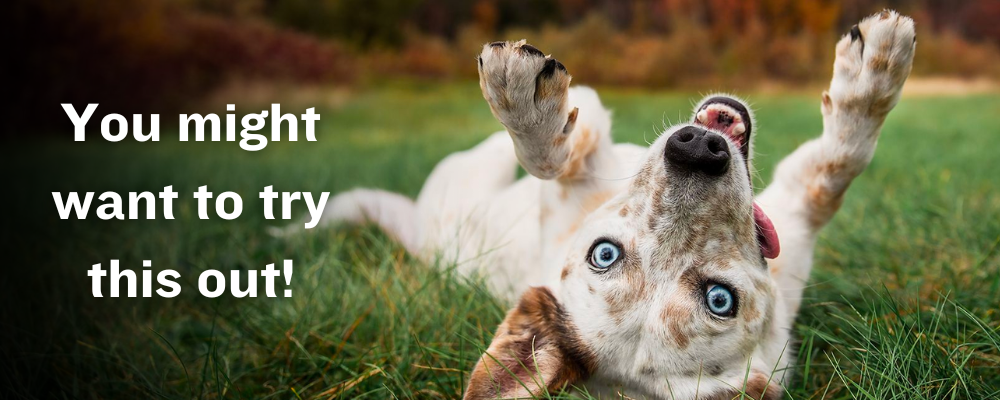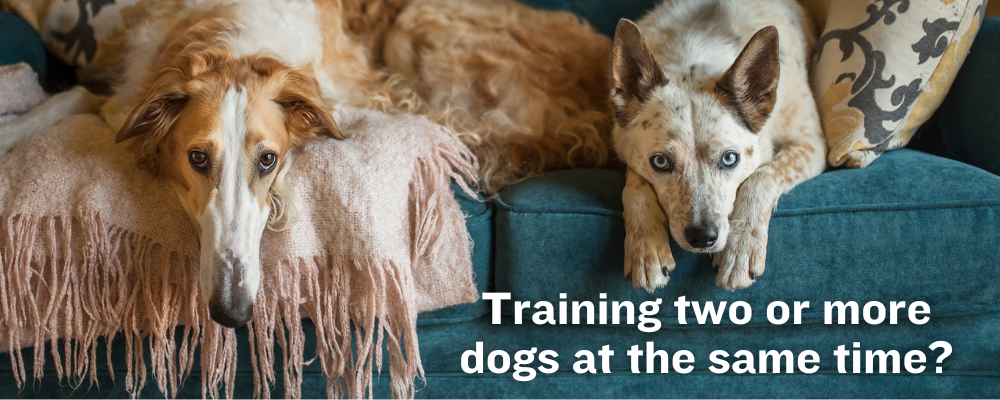Having a German Shepherd is a big responsibility, but it can also be a lot of fun! German Shepherds are loyal and intelligent dogs with a lot of energy. They are also very protective of their family and their territory. Because of these traits, German Shepherds have been used in military work for over 100 years. German Shepherds are great family pets, but they need an owner who is willing to spend time training them and working on keeping them obedient. Here, are some tips on how to be the best german shepherd owner you can be!
Disclosure: This post contains affiliate links. We may earn a small commission if you decided to make a purchase, at no additional cost to you.
- 1. Understand your dog’s trait
- 2. Set house rules and boundaries
- 3. Learn your dog’s (body) language
- 4. Spend quality time with your dog
- 5. Introduce regular training sessions
- 6. Feed your dog nutritious meals
- 7. Make time for plenty of exercises
- 8. Socialize your dog early on
- 9. Take your dog to the vet regularly
- 10. Provide lots of love and praises
- Conclusion
1. Understand your dog’s trait
A dog’s trait is what makes a dog the breed of its kind. Originally developed as a herding dog, the German Shepherd Dogs are bred to work for and with humans.
They are intelligent, highly trainable, and love to work. GSDs are one of the most versatile dogs and they can be trained to do almost anything – from a guard dog, police dog, rescue dog to a guided dog for the blind, to name a few.
With their family, they’re easy-going and approachable. And they have a reputation to be good with children. The German Shepherd is sometimes aloof to strangers. They don’t make friends. But once you are bonded with them, they’re extremely loyal to the point where they will risk their lives to protect you against any threat.
Being a herding breed, German Shepherds have a natural instinct to chase running animals. They may grab, bite, injure, or accidentally kill chickens out of their prey drive. But this behavior can be changed if your dog is trained properly.
2. Set house rules and boundaries
It’s important to give a dog rules, boundaries, and limitations.
Cesar Milian
Since your dog will share your living space, he needs to understand the “house rules” and boundaries from day one. A dog is a dog, they do not know your expectation unless you set limits. Setting and enforcing clear boundaries also helps them understand what should and should not be done – whether in the house or out in the public.
Like most canines, German Shepherds are pack animals. They need a strong “alpha” leader to establish rules and boundaries to help them understand their place in the pack.
Of course, that alpha leader is supposed to be you – the owner. All dogs, by nature, look to their pack leaders for direction. Giving them clear boundaries is essential to teach them what they can do and cannot do, and where they can go and cannot go. This is a lifesaver and saves you and your GSD from a lot of trouble.
Read more:
5 Tips For Building Boundaries (Cesearway.com)
3. Learn your dog’s (body) language
Just because dogs cannot speak does not mean they cannot communicate. You will be amazed at how much a dog is conveying from head to tail.
There is a lot you can pick up from a dog’s wagging tail. Their ears, eyes, mouth, and body can give you a lot of cues of how they are feeling.
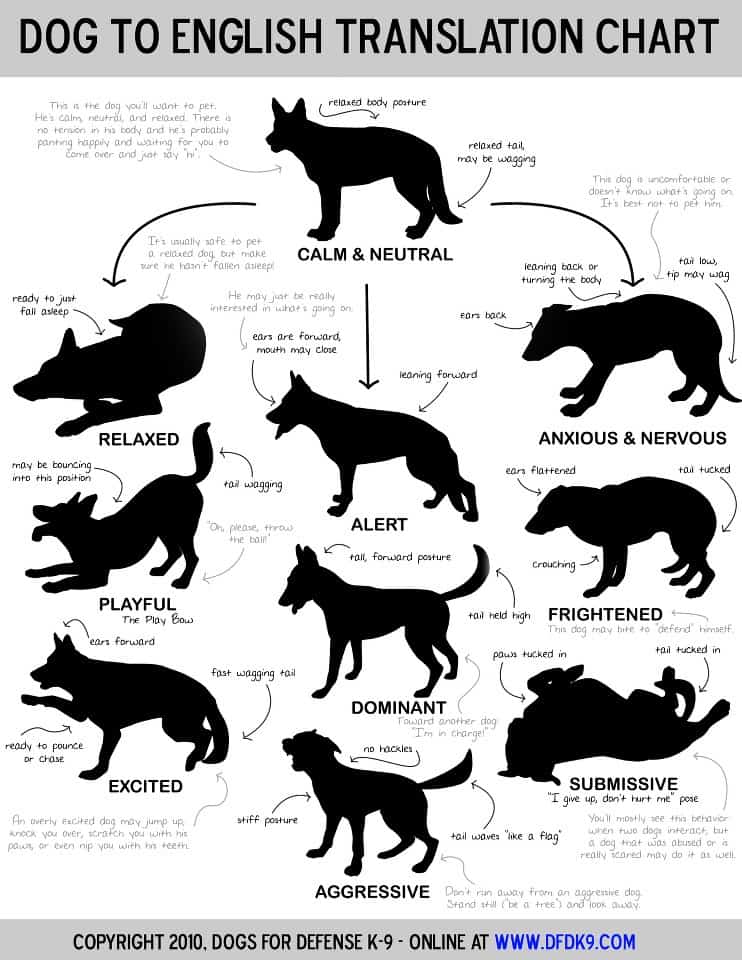
Eye language
A dog’s eyes can tell you a lot about how they are feeling.
You may be advised to avoid “eye contact” with a stranger dog in the first contact. This is true because pack animals might feel intimidated by staring at each other right in the eyes. Large, dilated pupils, or when a dog looks at you from the corner of their eyes, usually mean aggressive or fear-based behavior.
However, if a dog gazes at you with “soft eyes”, that means they are submissive.
Ears language
Calm dogs tend to relax their ears in a natural and relaxed position. When alert, or if feeling aggressive or dominant, a dog will raise their ears higher and point them in the direction of their potential threat.
On the contrary, if a dog has fearful or worried, its ears will be pulled flat against its head.
Mouth language
Usually, a relaxed dog will have a soft and relaxed mouth. If a dog has a tight mouth or tensed-up lips, that shows tension. A curled lip and exposed teeth may be signs of aggression.
Tongue flicking or licking often indicates uncertainty or restlessness. Yawning means submission and sometimes unease.
Tail language
A dog’s tail is the most prominent indicator of a dog’s emotions.
A content dog usually keeps its tail relaxed in a natural position. Excited dogs wag their tail quickly from side to side.
A cautious dog will also wag their tail, but it will be straight out and wagged slower and more steadily. This gesture has always been misunderstood as being a friend before an attack. A step up is when alert, a dog holds its tail tall and erect.
A fearful or frustrated dog will tuck the tail between the legs.
Body language
The body language of dogs is governed by muscle tension. This is your guide to their emotions. Tight muscles, usually coupled with raised hair around the head and shoulders, often indicate that a dog is scared or aggressive.
For example, calm dogs will display a smooth coat along their back, while scared or challenged dogs will raise the hairs (called hackles) along their neck and back to appear larger in size to show dominance.
4. Spend quality time with your dog
German Shepherds are working dogs, they are not supposed to be sleeping, eating, and being left alone for the most part of their days. Most importantly, GSD is a breed that is designed to work with humans, so it is extremely important for GSD dog owners to spend quality one-on-one time with their dogs.
#1 Get some exercise together
German Shepherd is not your couch potato, they have lots of energy that needs to be released. Jogging can be a fun activity for you and your canine friend to enjoy together. Even just a slower-paced walk around the neighborhood for an hour would be great.
Apart from your regular routine, take yours through a new routine or a new park where he can explore the new environment and stimulate their mind.
#2 Do chores together
Starting from your yard, you can give your dog the job of helping in a garden or with yard clean-up. You can even lead him around with no real purpose—he won’t care, he’ll still think he’s doing an important job.
You can train your pooch to carry in the grocery bags from the car or help you carry items upstairs when you’re cleaning.
Teaching the “find” or “go get” cue can also be very helpful. Once your dog understands the basis of the game, you can teach him to find and fetch all kinds of objects. For example, you can teach him to bring you your shoes before a walk or carry over his own leash.
#3 Go for a car ride
Most dogs love riding in the car and taking in all the new sights and smells. This can be combined with a shopping trip to pet-friendly stores, or simply a road trip for the sake of it. Depending on where you live, you may even take it on a long weekend camping trip, or just a quick journey around the neighborhood.
#4 Play a game
Whether it’s a frisbee catch in the park, treasure hunt or tug-of-war in the house, pick a game that your dog can enjoy. Playing games with your dog is a great way to bond with your dog. And this will keep them mentally stimulated.
#5 Enjoy music together
A vocal breed like the German Shepherd is very likely to “sing” along with you. If your dog is wagging his or her tail as they howl along with your instrument, you know they are having a good time. Even if you don’t play any instrument, put on some soft rock, classic music or even reggae that is proved to have a calming effect for most dogs.
#6 Let your dog sleep with you
Pack animals lean against each other so they feel secure and warm. Chances are, you may already have your furry friend sleeping with you. But if you’re not one of them, you can move his bed into your room so he can at least be near you and have your company during the night. Sleeping together is quality time together.
These are some of the common activities you can spend time with your beloved German Shepherd. The bottom line is, dedicate your time as a 1-to-1 session for your furry friend.
5. Introduce regular training sessions
The best way to become a successful German shepherd owner is to learn how to be a good trainer. The dog needs to learn that you are the leader and that he is supposed to obey you.
Before you start to teach your German Shepherd, you should take the time to do some research. Ask other owners if they’ve ever tried teaching their dogs a new command.
Look for books and videos that can help you learn how to be a good trainer. However, this doesn’t mean that you should try to teach your German Shepherd everything all at once. Start off slowly, working on small tasks and rewarding your dog when he does what you ask him to.
For more training tips as a beginner, you can check out our German Shepherd Puppy Training Guide for Beginners.
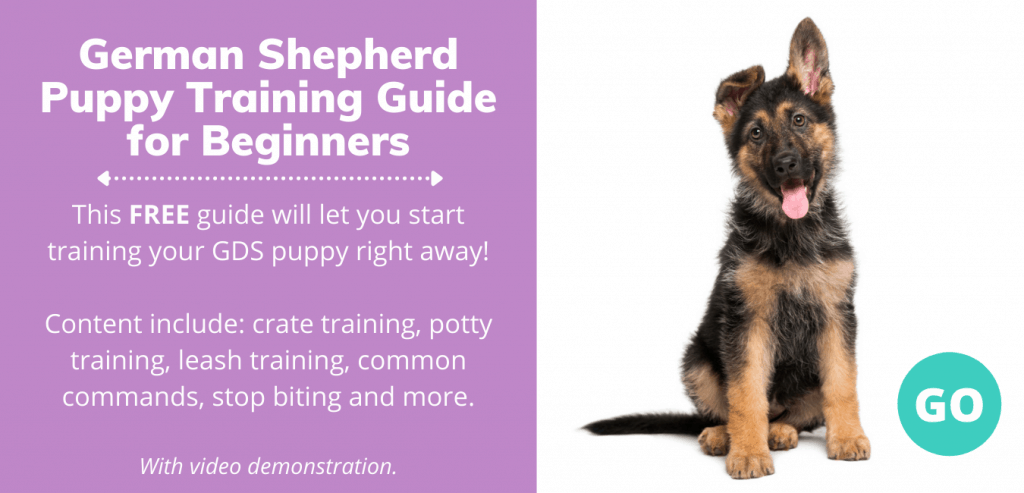
And we also have compiled a list of 10 Books Every German Shepherd Owner Must Read.
6. Feed your dog nutritious meals
A high-quality and nutritious diet is essential for your dog to live longer and healthier, there’s no doubt about it. Here are the facts you should know about choosing the best food for your dog.
While dry kibble is what most people feed their dogs for the interest of convenience, time, and cost, adding wet canned food is even better.
“You get higher protein and moisture content so it’s more specific to what dogs need,” according to Dr. Judy Morgan, DVM, a holistic veterinarian in Clayton, New Jersey, and author of Yin & Yang Nutrition for Dogs,
Frozen fresh meal has become more popular over the years, said Dr. Judy Morgan. “They’re probably healthier than kibble. These foods are closer to whole-food nutrition, which is always better for dogs.”
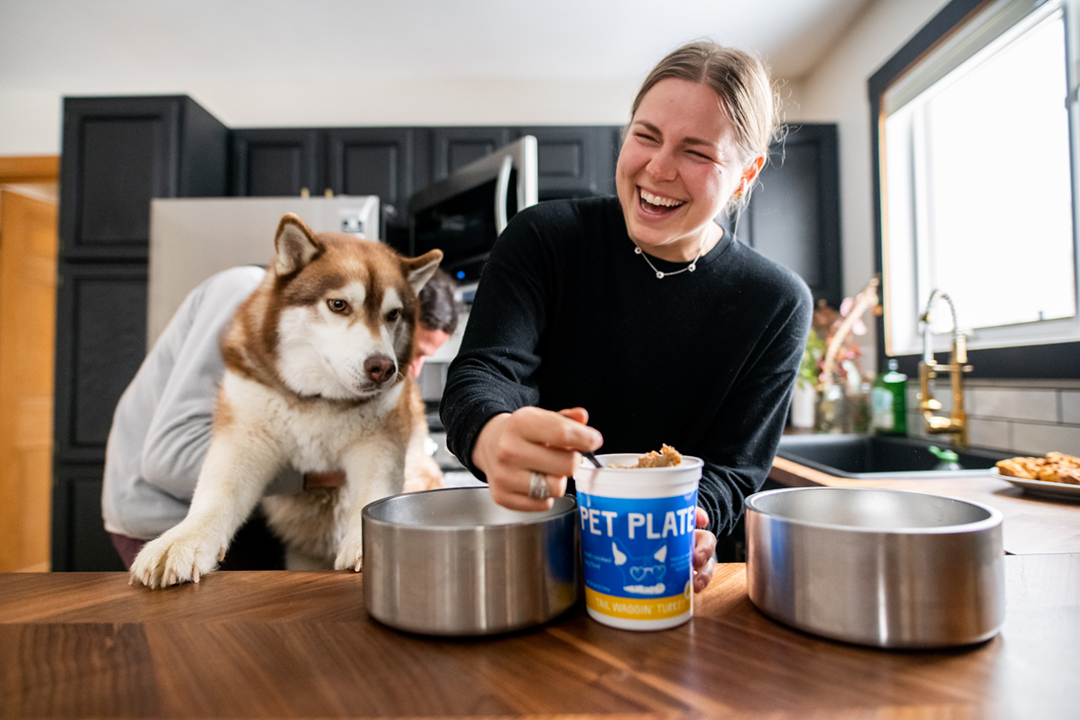
For instance, if you want to take advantage of an all-natural and subscription-based dog food delivery service, you might like to check out PetPlate. All their meals are cooked in USDA facilities that is developed by a vet nutritionist.
7. Make time for plenty of exercises
German Shepherd is a working and herding dog. They typically have a lot of energy. and that energy needs to go somewhere before it turns into destructive behavior in the house.
A tired dog is a good dog.
For adult German Shepherds, the American Kennel Club recommends at least two hours of exercise daily. That being said, you and your family should be prepared to be active with your GSD.
If you like walking, hiking, biking or happen to be a marathon runner, it shouldn’t be a problem at all. Your GSD will be your perfect exercise companion day in and day out.
However, if you are no sporty person but are planning to lose some weight, you could definitely take advantage of your GSD as your activity partner.
You may also like: Can German Shepherds Run a Marathon?
Since GSD are intelligent dogs, chances are that they might get bored easily with repeated activities. It will be a good idea to keep introducing new tricks, different parks or routes to cater to your GSD’s need.
8. Socialize your dog early on
You should start to socialize your puppy as early as 8 weeks. (Check with your vet for vaccination before she is ready to meet other dogs) Things you can introduce to your puppy include, but not limited to:
- People and children
- Dogs and puppies
- Other animals (e.g. chicken, goose, birds, squirrels, etc.)
- Different sound or smell
- Cars, trucks, bikes, scooters, etc
- Different surfaces like concrete, stones, bricks, mud, sand, etc.
At first, your puppy may get a bit uncomfortable because everything is new to her. Give her encouragement and make reward her with a treat if she does approach it.
Socialization is a lifelong exercise for your German Shepherd. You should keep stimulating your dog with new encounters as much as you can.
Related resources: German Shepherd Puppy Training Guide for Beginners – PART 5: Socialization
9. Take your dog to the vet regularly
Taking your pooch to the vet regularly is a way to keep your dog in good shape. And it may even save you from breaking your bank with vet bills in the long run. All dogs should have a complete physical check-up at least once per year. These “wellness exams” give you a chance to track your dog’s growth and development, and discuss any concerns with your vet.
According to the American Association of Animal Hospitals, “pets are more likely to get sick if they don’t visit a veterinarian at least annually.”
However, puppies and senior dogs may need more frequent visits. If you’re nervous about the cost of vet visits, keep in mind that preventative health care can keep your pet healthier longer, and may even save you money in the long run.


During annual wellness exams, the vet will give your dog an all-over check-up. They’ll listen to their heart and lungs, look at their eyes and ears, check for fleas and other common afflictions.
They’ll also update any vaccinations needed. After the exam, the vet may make suggestions for your dog’s nutrition and dental care, or recommendations for activities and medications specific to your pup’s health status. (Source: Rover)
10. Provide lots of love and praises
Your dog is a family member, he lives with you and depends on you. All good owners will be kind, caring and considerate in treating their dog. Dogs read a lot into your tone of voice, so speak kindly to him and he will understand your intentions.
Also read: 7 Things You Didn’t Know Your Dog Can Sense
Always use positive reinforcement with your dog. Praise and reward work best for motivating your German Shepherd puppy. Your dog will quickly learn what is needed to do to please you as well.
Conclusion
There you have it – 10 tips to make you a good German Shepherd owner. Yes, there will be a lot of work and responsibilities. But if you treat your GSD well and train him up to be an obedient canine citizen, the reward is that you will have a loyal, protective, sometimes fun and good companion for years to come. Good luck!
